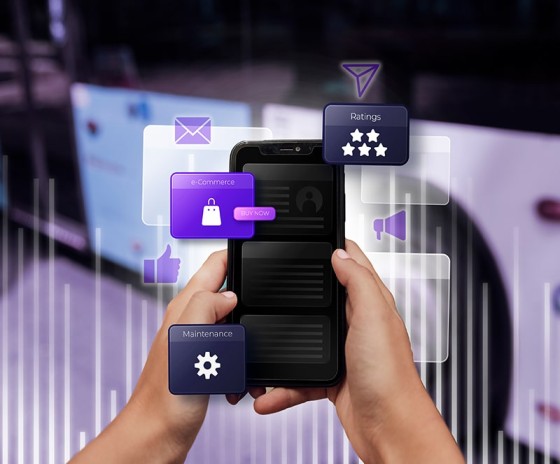
Explore the latest trends and technologies that are revolutionizing mobile application development from seamless integrations to enhanced user experiences.
In the dynamic world of technology, mobile application development continues to evolve at a rapid pace. Developers and businesses must stay abreast of the latest trends to create applications that not only meet current market demands but also anticipate future needs. This blog will delve into the latest trends in mobile application development for Android and iOS platforms, explore the technologies shaping the future, and highlight case studies of successful mobile apps with innovative features.
Cross-Platform Development
Cross-platform development tools like Flutter and React Native are gaining popularity. These frameworks allow developers to write a single codebase and deploy it across multiple platforms, significantly reducing development time and costs while maintaining high performance.
5G Technology
The advent of 5G is revolutionizing mobile application development. With faster data transfer rates and lower latency, 5G enables more responsive and reliable apps, enhancing user experiences. This technology opens new avenues for augmented reality (AR), virtual reality (VR), and Internet of Things (IoT) applications.
Augmented Reality (AR) and Virtual Reality (VR)
AR and VR technologies are increasingly being integrated into mobile applications, especially in gaming, retail, and real estate sectors. ARKit for iOS and ARCore for Android provide robust platforms for developers to create immersive experiences.
Artificial Intelligence (AI) and Machine Learning (ML)
AI and ML are transforming mobile apps by enabling personalized user experiences. These technologies are used for voice recognition, predictive text, recommendation engines, and more. Apple’s Core ML and Google’s ML Kit are prominent tools facilitating AI integration in mobile apps.
Progressive Web Apps (PWAs)
PWAs are becoming a popular choice due to their ability to deliver a native app-like experience through a web browser. They are cost-effective and offer improved performance, offline capabilities, and enhanced user engagement.
Blockchain
Blockchain technology is gaining traction in mobile app development for its potential to enhance security, transparency, and traceability. It is particularly useful in finance, healthcare, and supply chain management apps.
Internet of Things (IoT)
IoT integration in mobile apps allows users to control smart devices directly from their smart phones. This trend is growing in sectors like home automation, healthcare, and industrial applications.
Edge Computing
Edge computing processes data closer to the data source, reducing latency and improving real-time data processing. This technology is beneficial for applications requiring immediate data insights and actions, such as autonomous vehicles and industrial IoT.
Biometric Authentication
With increasing concerns about data security, biometric authentication methods like facial recognition, fingerprint scanning, and voice recognition are becoming standard in mobile apps, enhancing security and user convenience.
Cloud Integration
Cloud technology enables mobile apps to store data and perform computing tasks remotely, reducing the burden on the device and improving app performance. Services like AWS, Google Cloud, and Microsoft Azure are key players in this space.
TikTok
TikTok has revolutionized social media with its short-form, engaging video content. Its success can be attributed to its powerful AI algorithms that personalize content for users, creating a highly addictive user experience. The app’s user-friendly video editing tools and seamless integration with music tracks also contribute to its popularity.
Uber
Uber’s mobile app transformed the transportation industry by leveraging GPS technology, real-time data processing, and cashless payment systems. Features like dynamic pricing, ride-sharing options, and driver-partner programs have made Uber a global success.
WhatsApp remains one of the most popular messaging apps worldwide, thanks to its end-to-end encryption, user-friendly interface, and constant feature updates like voice and video calls, status updates, and group chats. Its commitment to user privacy and minimalistic design has contributed to its widespread adoption.
Spotify
Spotify has changed the way we listen to music with its streaming service. Its success lies in its powerful recommendation engine driven by AI and ML, offering personalized playlists and discovering new music. Features like offline listening, collaborative playlists, and integration with social media platforms enhance user engagement.
Airbnb
Airbnb revolutionized the hospitality industry by enabling users to rent out their properties or book unique accommodations around the world. The app’s user-friendly interface, secure payment system, and robust review and rating system have contributed to its success. Innovative features like Experiences, which offer local activities hosted by residents, have further enhanced its appeal.
© 2024 Crivva - Business Promotion. All rights reserved.